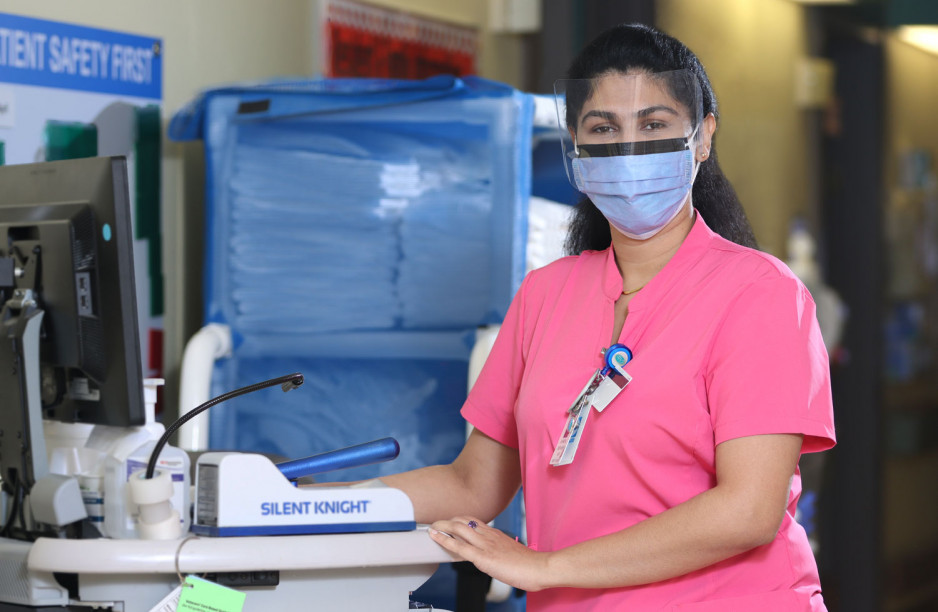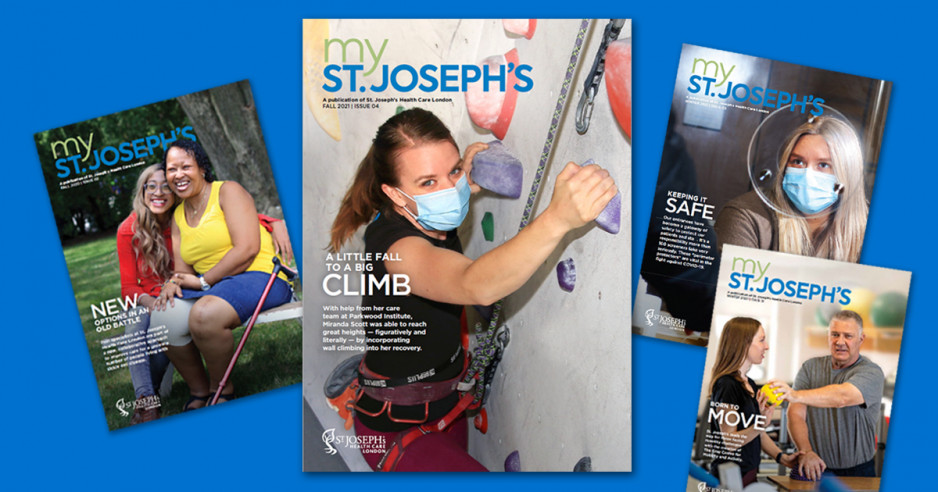Realizing a dream in a new land
Ever since she can remember, Jasmine Devassy has dreamed of being a nurse. She’s even chased that dream across the world. “I grew up in India, in a family of nurses,” says Jasmine. “My mom is a nurse, and so are two of my sisters.” Jasmine completed her registered nurse (RN) training in India in 2005 and went on to work as an RN in Singapore for twelve years. While working, she completed her RN degree through distance learning at a university in Australia.
In 2018 Jasmine and her husband decided to move to Canada. “We were planning to stay in Singapore, but they require boys to complete a minimum of two years in the military. That’s not something that we were comfortable with, given we have a young son.”
With the move came a new set of challenges. Before working in the field as an RN, Jasmine needed to be certified with the College of Nurses of Ontario (CNO), the governing body of all nurses in the province. The rigorous certification process includes passing a written exam and demonstrating knowledge in both education and nursing practice.
“The training provided to nurses in other countries is not parallel to what’s provided in Canada,” explains Angela Reid, professional practice consultant at St. Joseph’s Health Care London (St. Joseph’s). “These individuals often need to upgrade their skills, but proving they have the practical competencies needed without having worked in the Ontario health care system is difficult.”
That’s where the Supervised Practice Experience Partnership Program (SPEP) comes in. In January 2022, Ontario Health and the CNO collaborated to develop SPEP, a program that provides internationally educated nurses the opportunity to demonstrate their competency to practice (sometimes including English language proficiency) while being supervised and mentored by a CNO member.
St. Joseph’s Professional Practice and Human Resources teams have worked to implement SPEP across the organization, matching several applicants, some of whom were already employed at St. Joseph’s in other roles, with RPN or RN preceptors in various clinical areas. “Preceptors provide supervised guidance to these applicants while they complete their clinical hours, and demonstrate their competency to practice in Ontario,” says Angela. “It’s a mutually beneficial arrangement. The applicants get the experience they need in a safe environment while our health care system gains the unique perspectives of care these individuals learned in their home countries. The SPEP is also a way for St. Joseph’s to recruit, retain and grow our nursing workforce.”
Enhancing opportunities for nurses to join the system is especially important with the current health human resource strain. According to the Registered Nursing Association of Canada, Ontario’s shortage of registered nurses has been an issue for decades, with the province trailing the rest of Canada by 22,000 nurses per-capita. The problem has worsened the stress from the COVID-19 pandemic that has seen nurses leaving the profession in droves. Through SPEP, Ontario Health and the CNO has tapped into a new pool of candidates willing to step into these roles.
For Jasmine, SPEP has meant she can stay with her family and reach her goals, “At one point, I considered moving back to Singapore so I could continue working, while my husband and children stayed here in Canada. Through SPEP, St. Joseph’s has provided me the opportunity to once again work in the profession I love. I have an amazing preceptor who always takes the time to answer my questions and gives me the confidence I need in myself and my skills, so I can provide better care to my patients.”

